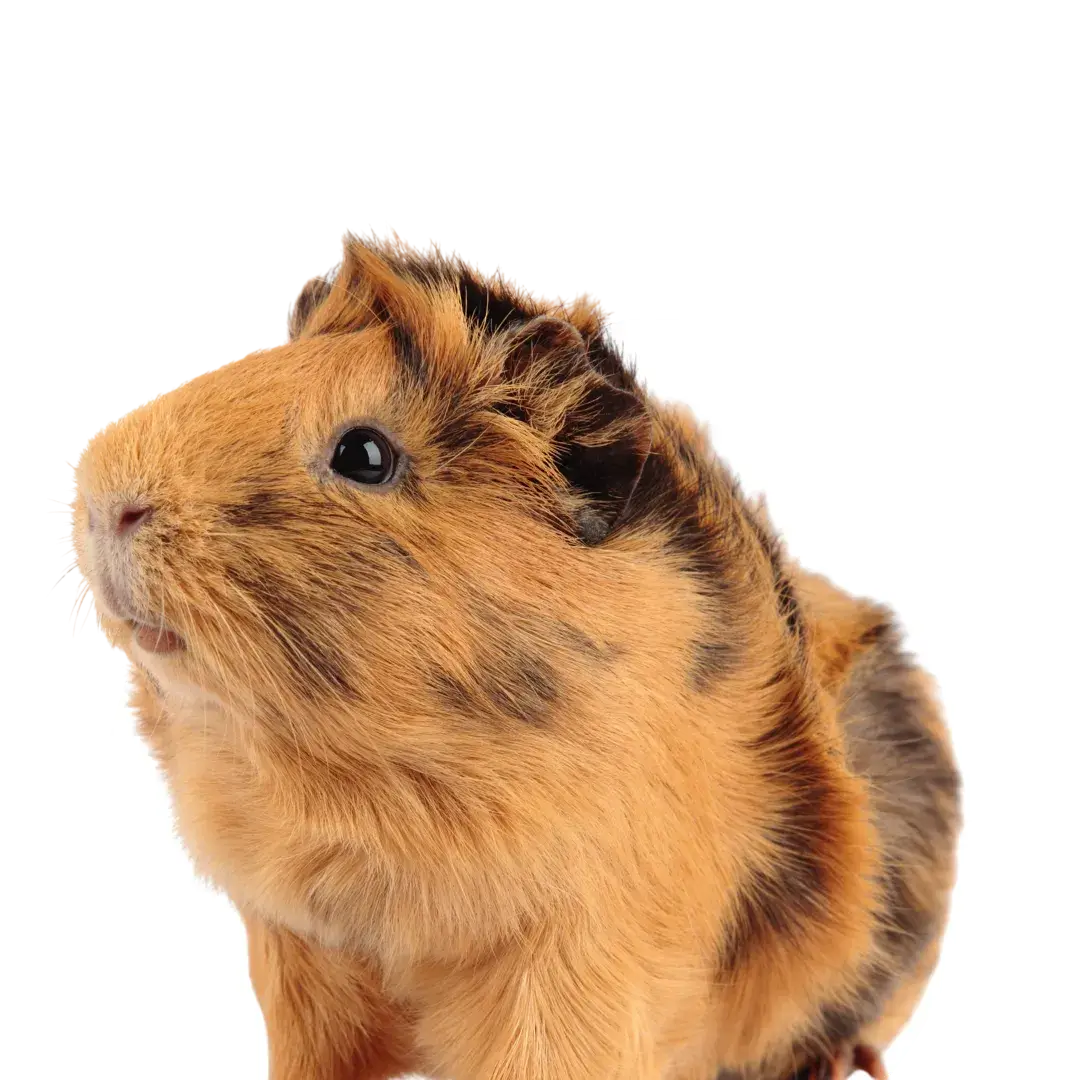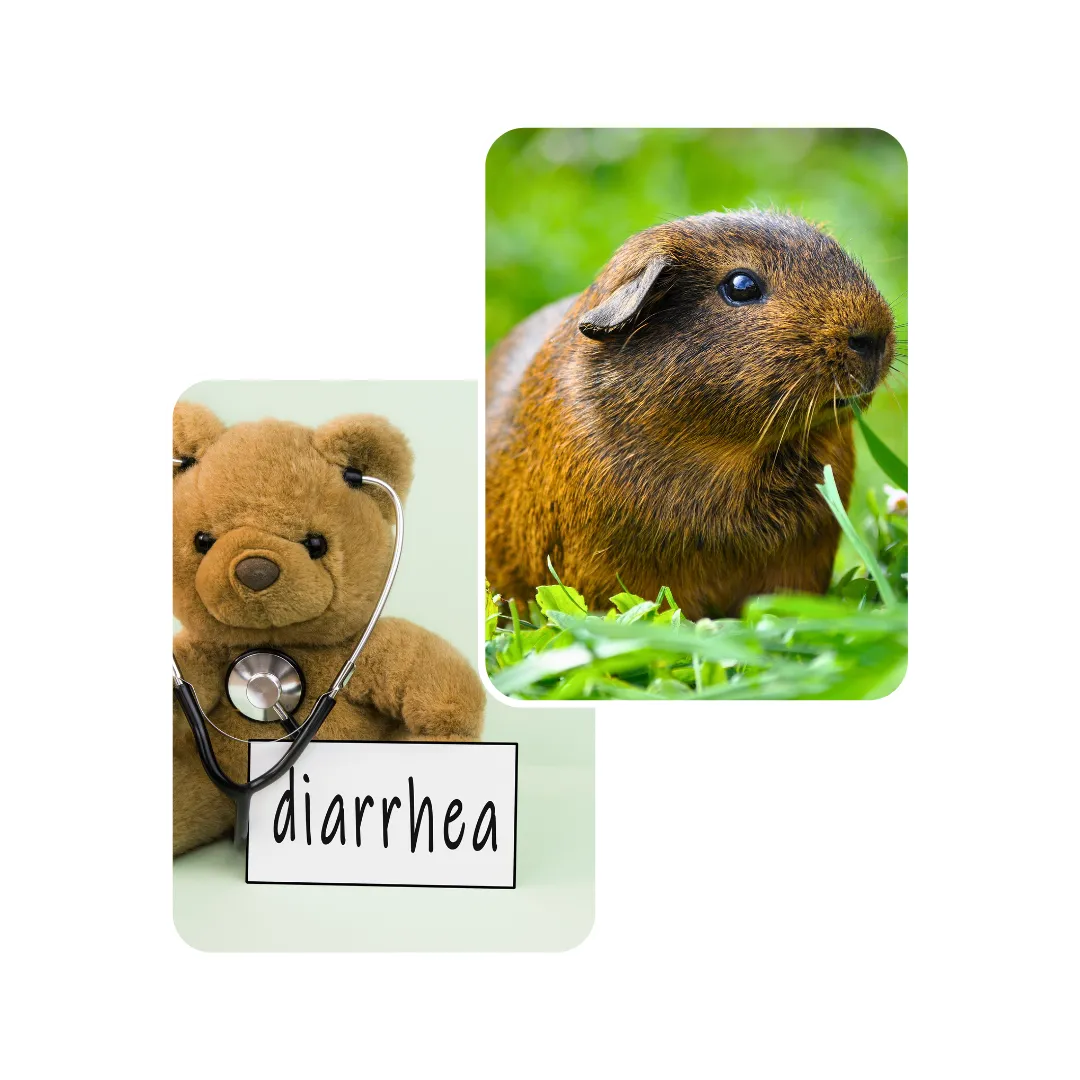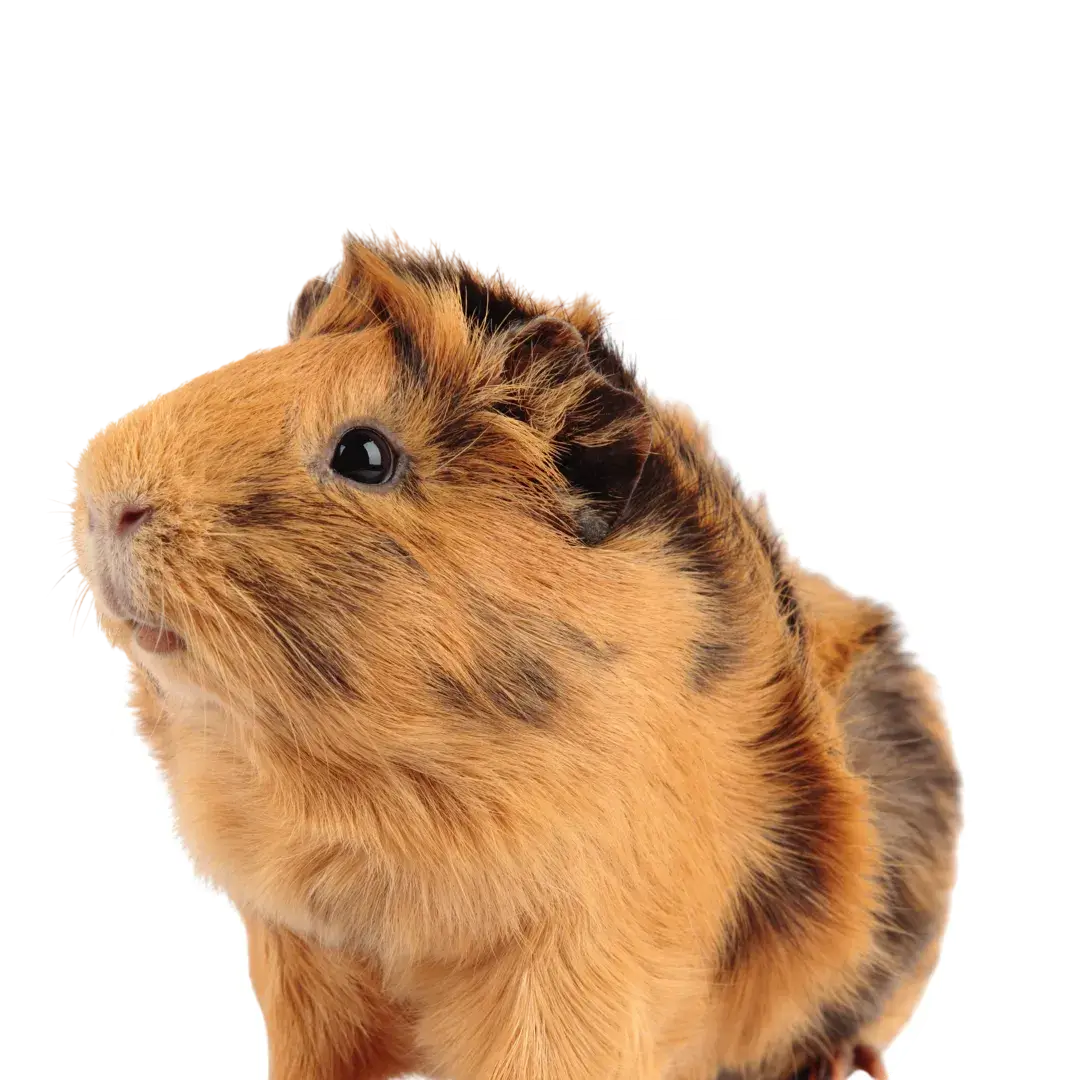
Digestive prblem can be caused by sudden diet changes, eating too many watery vegetables or spoiled food. Infections from bacteria, viruses or parasites are also common causes. Certain antibiotics unsafe for guinea pigs can destroy healthy gut bacteria, leading to life threatening digestive problem. Stress, poor hygiene and vitamin C deficiency also make the gut weaker and more vulnerable.

Instead of firm pellets, droppings become soft or liquid, often sticking to fur and cage bedding.
Sunken eyes, dry gums and less skin elasticity indicate fluid loss. Severe dehydration can be fatal in small pets.
A swollen, tight belly may develop, making movement uncomfortable. Some guinea pigs may squeak when touched.
In severe infectious digestive, guinea pigs may decline rapidly and collapse without early treatment.
Stool smells much stronger than normal, a common sign of infection or gut imbalance.
Guinea pigs may stop eating hay and pellets, leading to fast weight loss. Weakness follows quickly if food intake doesn't improve.
Wet, sticky droppings cling to fur, increasing the risk of skin infections.
Digestive disturbance can come from poor diet, infections, parasites, or unsafe antibiotics. Sudden diet changes or too many vegetables are common triggers.
If stools are constant, watery or foul smelling and your guinea pig is weak, losing weight or not eating, it’s serious. These signs mean immediate vet care is needed.
Yes, if its caused by bacteria or parasites. Infections spread quickly, especially in shared cages. Always separate the sick guinea pig to protect the others.
Unlimited hay is most important, as it helps restore gut balance. Remove watery vegetables and sugary treats. Follow your vet’s instructions for probiotics or supplements.
Treatment depends on the cause. Vets may prescribe antibiotics (safe for guinea pigs), antiparasitic medication or fluids to rehydrate. In some cases, syringe feeding is required.
You can click the Appointment button on our website or walk to our vet directly. Booking early ensures your guinea pig gets treatment without waiting in discomfort.
Your pet deserves expert care – Subscribe now for trusted tips and updates from our pet experts.
